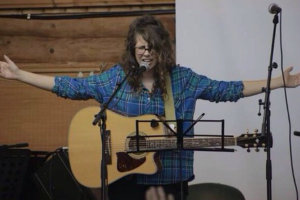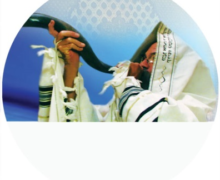Israeli Media Takes a Positive Look at Messianic Jews
 Israel’s leading media group, Keshet, has taken a keen interest in the nation’s Messianic Jewish community after one of its flagship television shows, the popular singing competition Kochav Haba (“The Next Star”), featured a Messianic Jewish contestant.
Israel’s leading media group, Keshet, has taken a keen interest in the nation’s Messianic Jewish community after one of its flagship television shows, the popular singing competition Kochav Haba (“The Next Star”), featured a Messianic Jewish contestant.
Keshet’s online news and entertainment portal, Mako, published a weekend story asking readers to take a closer look at Israel’s 15,000 Messianic Jews and to be more welcoming toward those who believe in Yeshua (Jesus).
The article opened by highlighting some of the hostile comments made after openly-Messianic Shai Sol scored a spot in Kochav Haba’s second round following a mesmerizing audition performance.
The negative responses by some to Shai’s appearance were, as the article noted, characteristic of the typical mainstream attitude toward Messianic Jews. But the fact that Mako ran such a sympathetic piece is further evidence that much of Israeli society is not only increasingly tolerant of Messianic Jews, but is also growing more curious about what they believe, and why.
First, it should be noted that the Mako article used the name “Yeshua,” rather than the derogatory “Yeshu,” an acronym used by most Orthodox Jews meaning “may his name and memory be erased.”
Shai was asked by Mako to explain in greater depth what it means to be a Messianic Jew, a subject she briefly touched on in her Kochav Haba pre-audition interview.
“It is a stream of Judaism… We light Shabbat candles and worship God, read the Scriptures and learn the Bible,” replied Shai, noting that the one major difference with mainstream Judaism is that “we believe in both the Tanakh and the New Testament.”
Asked if that means Messianic Jews celebrate Christmas, Shai stated, “Absolutely not. We celebrate only the Jewish festivals. This is not Christianity, this is Messianic Judaism. After all, Yeshua was a Jew.”
The conversation inevitably turned toward “conversion” and “missionary activity.” The interviewer said that for her and many Jews, “when I hear ‘Messianic Jew’ I immediately think of Jehovah’s Witnesses.”
Shai said there was no connection. “The title ‘Messianic Jew’ always brings up negative connotations of Christians, of a cult, of missionaries. We are not missionaries walking around trying to compel people.”
The young singer explained that if someone like her interviewer was interested, “I would tell you about Yeshua and show you some [supporting] scriptures. I would invite you to a meeting at a [Messianic] congregation.”
Shai further clarified that Messianic faith is first and foremost “humanitarian” in nature, and that one cannot be compelled to accept Yeshua, who “after all [taught us] to spread love. He healed the sick and did many other social works.”
Shai said that many in the Messianic community had expressed support and satisfaction over the fact that a fellow believer had taken the national stage and in so doing had been boldly open about her faith.
“I have received a lot of messages from Messianic youth who are usually afraid to speak about [their faith],” said Shai. “They see in my ‘coming out’ an act of bravery, but I see it as natural.”
The interviewer noted that Shai has a great desire to be “a pioneer for the community, [part of] a Messianic vanguard that builds the bridge between Israeli society and Messianic Judaism.”
Shai will certainly have an opportunity to do that as she has started work on her first CD, and is scheduled to appear again soon on Kochav Haba, where critics rate her among the top contestants.



